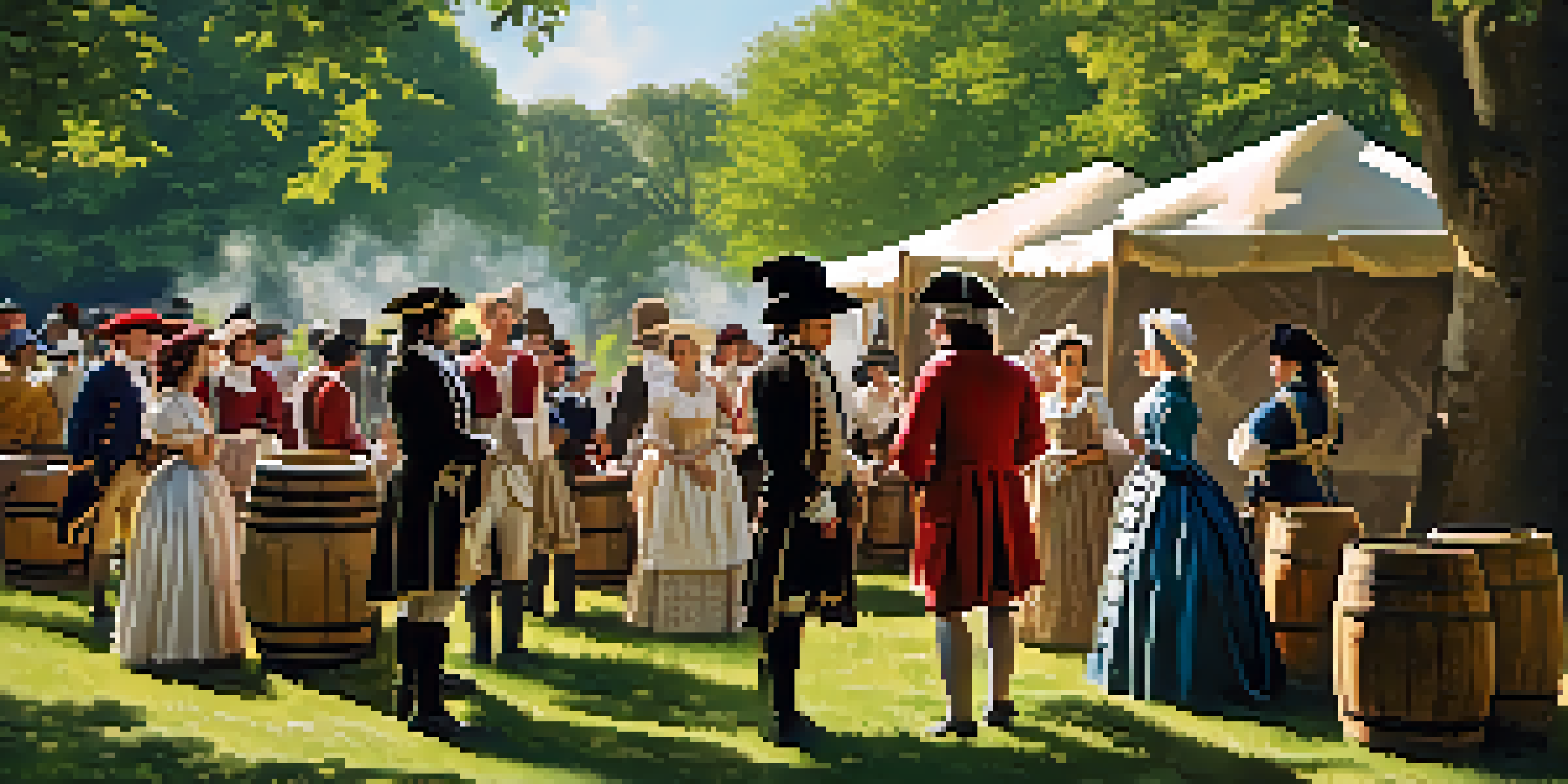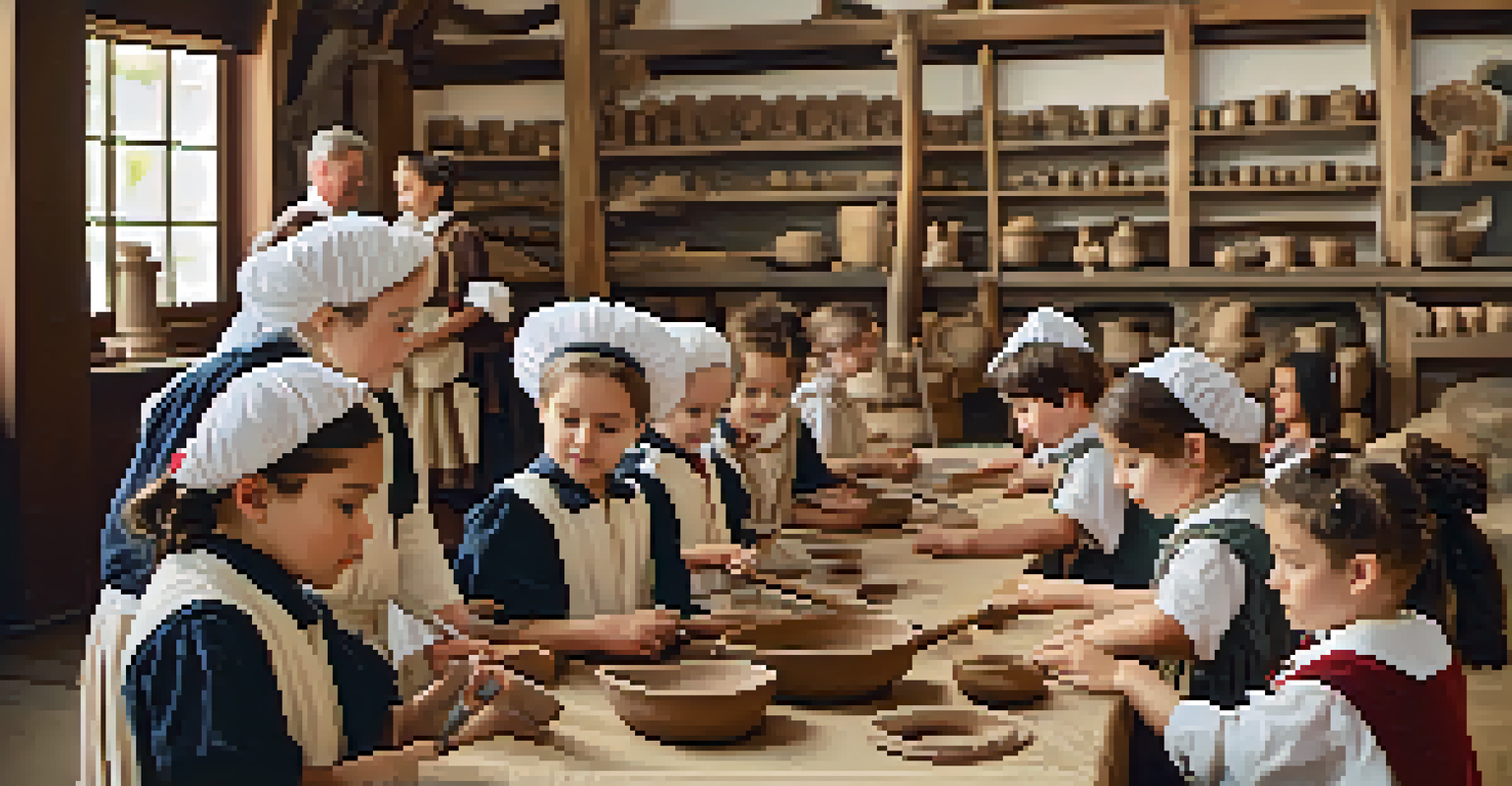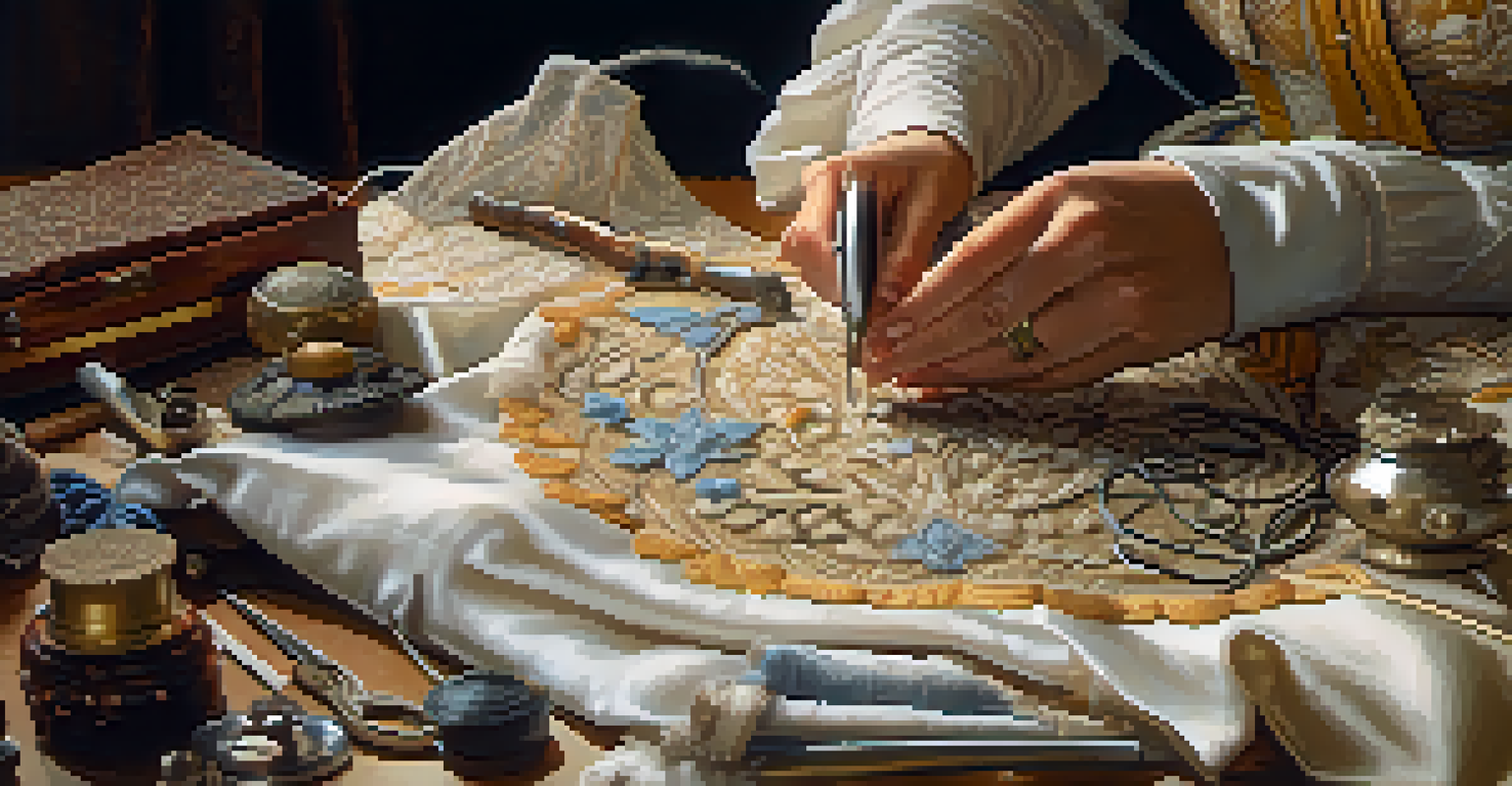Building Community Through Historical Reenactment Groups

What Are Historical Reenactment Groups?
Historical reenactment groups are communities that recreate specific historical events or periods. Members often don period-appropriate clothing and use authentic tools or replicas to bring history to life. These groups can focus on a wide range of topics, from military battles to everyday life in different eras.
History is not a burden on the memory but an illumination of the soul.
The appeal of reenactment lies in its combination of education, entertainment, and community participation. Participants not only gain a deeper understanding of history but also engage with others who share similar interests. This shared passion fosters friendships that can last a lifetime.
In essence, these groups serve as living history lessons that go beyond textbooks. By immersing themselves in history, members create a vibrant community built on shared experiences and knowledge.
The Social Aspect of Reenactment Groups
At its core, a historical reenactment group is a social gathering. Members come together to share their love for history, often forming tight-knit friendships. Through regular meetings, events, and camps, participants bond over their shared interests, creating a sense of belonging.

These interactions help break down barriers between people of different backgrounds, ages, and experiences. Everyone is welcome, and the collaborative nature of reenactments encourages open dialogue and teamwork. This inclusive environment fosters a sense of community that extends beyond the events themselves.
Reenactment Groups Foster Community
These groups create a sense of belonging and lasting friendships among members who share a passion for history.
Ultimately, the social connections made through these groups are just as significant as the historical knowledge gained. These friendships often lead to support networks that can help members in various aspects of their lives.
Educational Benefits of Historical Reenactments
Reenactment groups offer a unique educational experience that goes beyond traditional learning. Participants engage in hands-on activities that enhance their understanding of history, making it more relatable and memorable. For instance, wearing historical clothing or using period tools can provide insights into daily life in that era.
We do not remember days, we remember moments.
Moreover, members often conduct extensive research to accurately portray their historical roles. This effort not only enriches their knowledge but also encourages critical thinking and historical analysis. The collaborative research process further strengthens group bonds as members share discoveries.
In this way, reenactment groups serve as informal classrooms where learning is both fun and engaging. Participants leave with not just facts but a deeper appreciation for the complexities of history.
Fostering Skills Through Reenactment
Participating in reenactment groups can foster a variety of skills that are valuable both within and outside the context of history. Members often learn craftsmanship, such as sewing, woodworking, or metalworking, as they create authentic costumes and props. These practical skills can be beneficial in everyday life.
Additionally, reenactors develop public speaking and performance skills as they present historical narratives to audiences. This aspect of reenactment can boost confidence and improve communication abilities, essential skills in any profession. The environment encourages individuals to step out of their comfort zones.
Hands-On Learning Enhances History
Participants engage in immersive activities that deepen their understanding of historical events and daily life.
Ultimately, the skills gained through reenactment extend beyond historical knowledge, equipping participants with tools for personal and professional growth.
Community Service and Historical Preservation
Many historical reenactment groups engage in community service and historical preservation efforts. By volunteering at local museums or heritage sites, they contribute to the maintenance and promotion of history within their communities. This commitment to preservation helps ensure that future generations can appreciate their local heritage.
Some groups also organize educational events for schools, bringing history to life for younger audiences. These initiatives not only enrich the community but also inspire a new generation to value their history. In this way, reenactment groups play a crucial role in fostering an appreciation for the past.
Through these efforts, members strengthen their community ties while advocating for historical awareness and preservation.
Creating Inclusive Spaces in Reenactment
Inclusivity is a vital aspect of successful historical reenactment groups. Many organizations actively strive to create welcoming environments for people of all backgrounds, regardless of age, gender, or experience level. This commitment encourages diverse perspectives and enriches the group's overall experience.
By prioritizing inclusivity, these groups break down stereotypes often associated with history enthusiasts. This openness allows for a broader interpretation of history, incorporating various viewpoints and experiences. It creates a more dynamic community that reflects the complexity of the past.
Promoting Inclusivity and Diversity
Reenactment groups actively strive to create welcoming environments that encourage diverse perspectives and experiences.
Inclusion not only enhances the reenactment experience but also builds a sense of belonging among members. Everyone feels valued and heard, contributing to a supportive community.
The Future of Historical Reenactment Groups
As society evolves, so do historical reenactment groups. Many are embracing technology and social media to reach wider audiences and attract younger participants. Live-streaming events or creating engaging online content helps to showcase their passion for history in innovative ways.
Moreover, the focus on diversity and inclusivity is likely to continue shaping the future of reenactment. Groups are increasingly recognizing the importance of representing a broader range of historical narratives, making history accessible and relatable to everyone. This evolution is essential for keeping the passion for history alive.

By adapting to contemporary trends while maintaining their core values, historical reenactment groups can ensure their relevance and growth in the years to come.
Conclusion: The Power of Community in Reenactment
Building community through historical reenactment groups is a powerful testament to the human experience. These groups provide a unique space for individuals to connect over a shared passion for history, fostering friendships and personal growth. The blend of education, social bonding, and inclusivity creates a rich tapestry of experiences.
As we look to the future, the role of reenactment groups in preserving history and fostering community will remain essential. Their efforts not only keep history alive but also create lasting connections that can transcend generations. The stories shared and friendships formed through these groups contribute to a more connected and understanding society.
In essence, historical reenactment is more than just a hobby; it's a vibrant community that celebrates the past while building a better future.